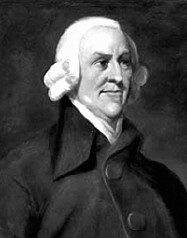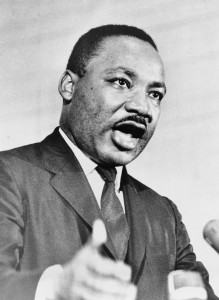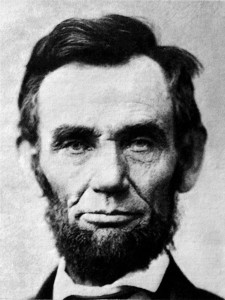 Almost everyone has heroes ranging from family members to sports stars to political leaders. Paul Kadri never realized it, but he didn’t have any heroes. It wasn’t until his late 20s that he found them. Although they came late to Paul Kadri, his heroes impact his life almost every day.
Almost everyone has heroes ranging from family members to sports stars to political leaders. Paul Kadri never realized it, but he didn’t have any heroes. It wasn’t until his late 20s that he found them. Although they came late to Paul Kadri, his heroes impact his life almost every day.
Information Nation: Before we talk about who they are, please explain the story about how you found your heros.
Paul Kadri: It is almost embarrassing to say, but I was in an interview while at business school for a summer job. I remember it was with the consulting firm Bain & Co. They simply asked me who my heroes were. I sat there with a blank look on my face knowing I had no shot at this job.
Information Nation: How did that motivate you?
Paul Kadri: I first thought about why it’s important to have heroes. I realized that without heroes it would be more difficult to motivate yourself to reach beyond your comfort levels. For example, if my hero was a great baseball player, I would be more motivated to try to develop his skills. Once I understood the importance of having heroes, the next challenge was to find them.
Information Nation: How did you determine your personal heroes among all the great people who have existed?
Paul Kadri: I guess it was a good thing that I’m a logical thinker, because I found a way to narrow my search to a much smaller number than “everyone who has existed.” I thought about what it is that I value in someone and what it is that I hope for myself. After some thought, I determined that I valued those who stand up for what is right even in the face of adversity.
Information Nation: That probably narrows it down to a few million?
Paul Kadri: Yes, it was still a large number, but I decided to look within recent history and in familiar cultures. There could be an African or Chinese individual from history who I would admire very much, but given my challenge, I had to narrow things slightly.
Information Nation: So where did you look for individuals who met your criteria?
Paul Kadri: Unfortunately, this all took place before the Internet. I believe my life would’ve been much easier if this search had happened about eight years later. I started with the presidents. I thought there was a likelihood that I would strongly connect with at least one of them. I then looked at the major struggles that took place over recent history. When I say recent, I started around the 1600s. Those two strategies proved to be right on target.
Information Nation: Were you looking for more than one hero?
Paul Kadri: I thought I was looking for one, but as it turned out I wound up with three. I joked to myself that I went all these years without a hero, but by now having three I would average out like everyone else.
Information Nation: OK, enough of the suspense. Who are your chosen heroes?
Paul Kadri: I can tell I picked the right ones, because I get excited about describing them. The first one is Adam Smith, who was a moral philosopher from Scotland. He lived during the times when those who controlled the shipping trade controlled the economy. There was tremendous abuse going on, as the shippers charged tremendous premiums for common goods. Adam Smith fought back against this by writing two books: the Theory of Moral Sentiments and The Wealth of Nations. Smith is the father of capitalism, and what many don’t know is that he also spoke about the importance of compassion.
Information Nation: You have a unique story about Adam Smith?
Paul Kadri: Yes, for my birthday years ago, my mother bought me a bust of Adam Smith. It was one of only 450 made. Many of the others sat on the desks of world leaders.
Information Nation: Who is the second one?
 Paul Kadri: The next two are pretty obvious. Martin Luther King Jr. is one of my heroes. What resonates with me about what he did was the way in which he did it. His goal was for a better society, and while it was not clear to others, it was crystal clear to him. Rather than making change through conflict, I believe he realized that his impact would far outlast his life if he made change in a way that emulated the society he dreamed of.
Paul Kadri: The next two are pretty obvious. Martin Luther King Jr. is one of my heroes. What resonates with me about what he did was the way in which he did it. His goal was for a better society, and while it was not clear to others, it was crystal clear to him. Rather than making change through conflict, I believe he realized that his impact would far outlast his life if he made change in a way that emulated the society he dreamed of.
Information Nation: And, cue drumroll, who is your third and final hero?
 Paul Kadri: Again, no surprise here. My third hero is Abraham Lincoln. Ironically, it turns out that Lincoln has the same disabilities that I have. That certainly makes me feel good. Like the other two, Lincoln saw clearly what others could not see. And he led the people he was responsible for to a better place even though it took a tremendous toll on him. Many don’t realize that he was one of the most disliked presidents during his time in office. From Lincoln I have learned the importance of conviction.
Paul Kadri: Again, no surprise here. My third hero is Abraham Lincoln. Ironically, it turns out that Lincoln has the same disabilities that I have. That certainly makes me feel good. Like the other two, Lincoln saw clearly what others could not see. And he led the people he was responsible for to a better place even though it took a tremendous toll on him. Many don’t realize that he was one of the most disliked presidents during his time in office. From Lincoln I have learned the importance of conviction.
Information Nation: To conclude, can you talk a little about how they impacted your life?
Paul Kadri: I should first say that I have a bust of each hero on my desk at the office. That helps me remember daily what they stood for. When I face a difficult challenge or a situation where I see things clearly that others don’t, I think about their point in time and how they reacted. Very often it gives me guidance as to how to act within my situation.
Paul Kadri has been a highly successful public school administrator for 16 years. In addition to exceeding normal expectations, Paul Kadri is known for creative vision and the ability to solve complex problems. For more information about Paul Kadri, visit his website at paulkadriblog.com.
 InformatioNation InformatioNationBlog.com
InformatioNation InformatioNationBlog.com